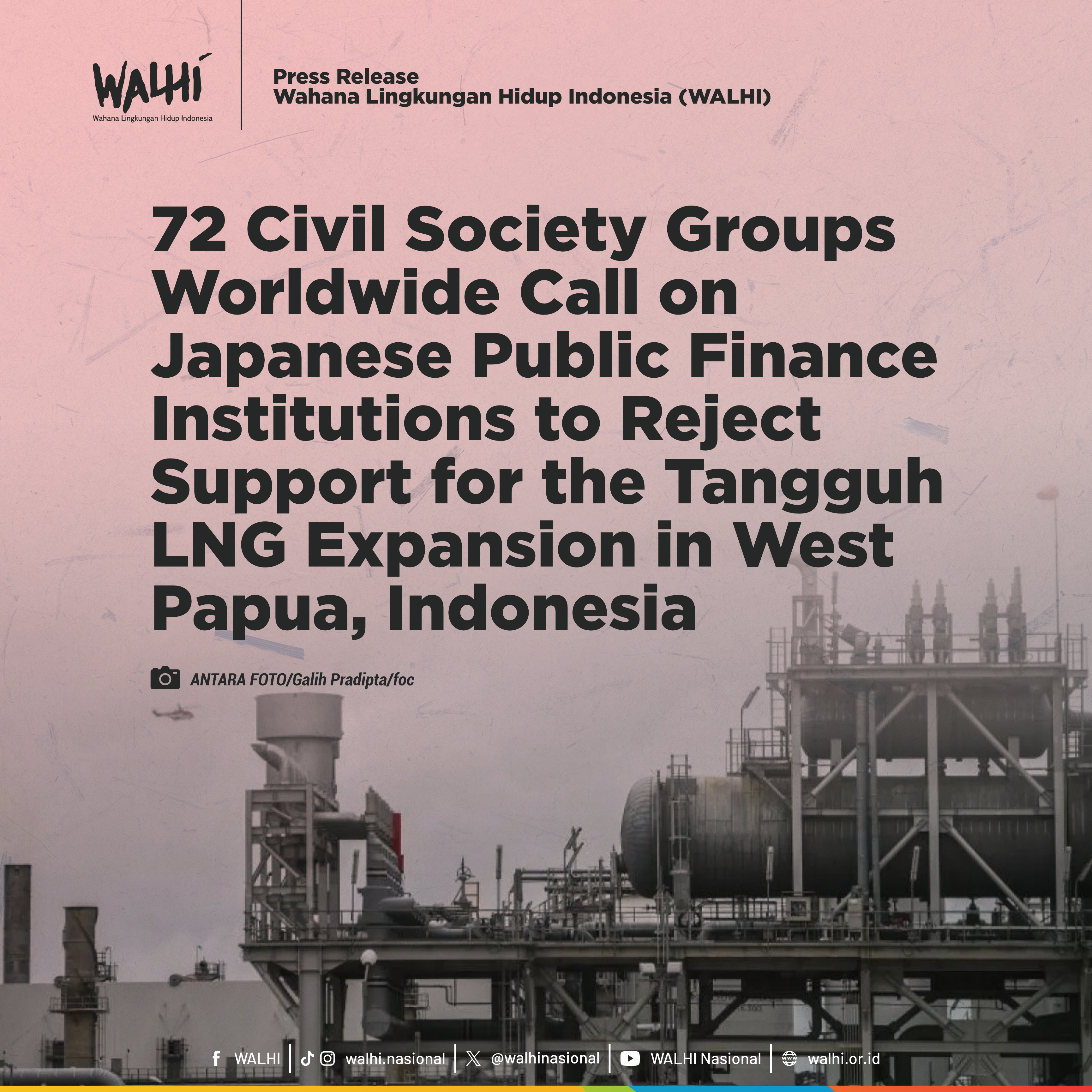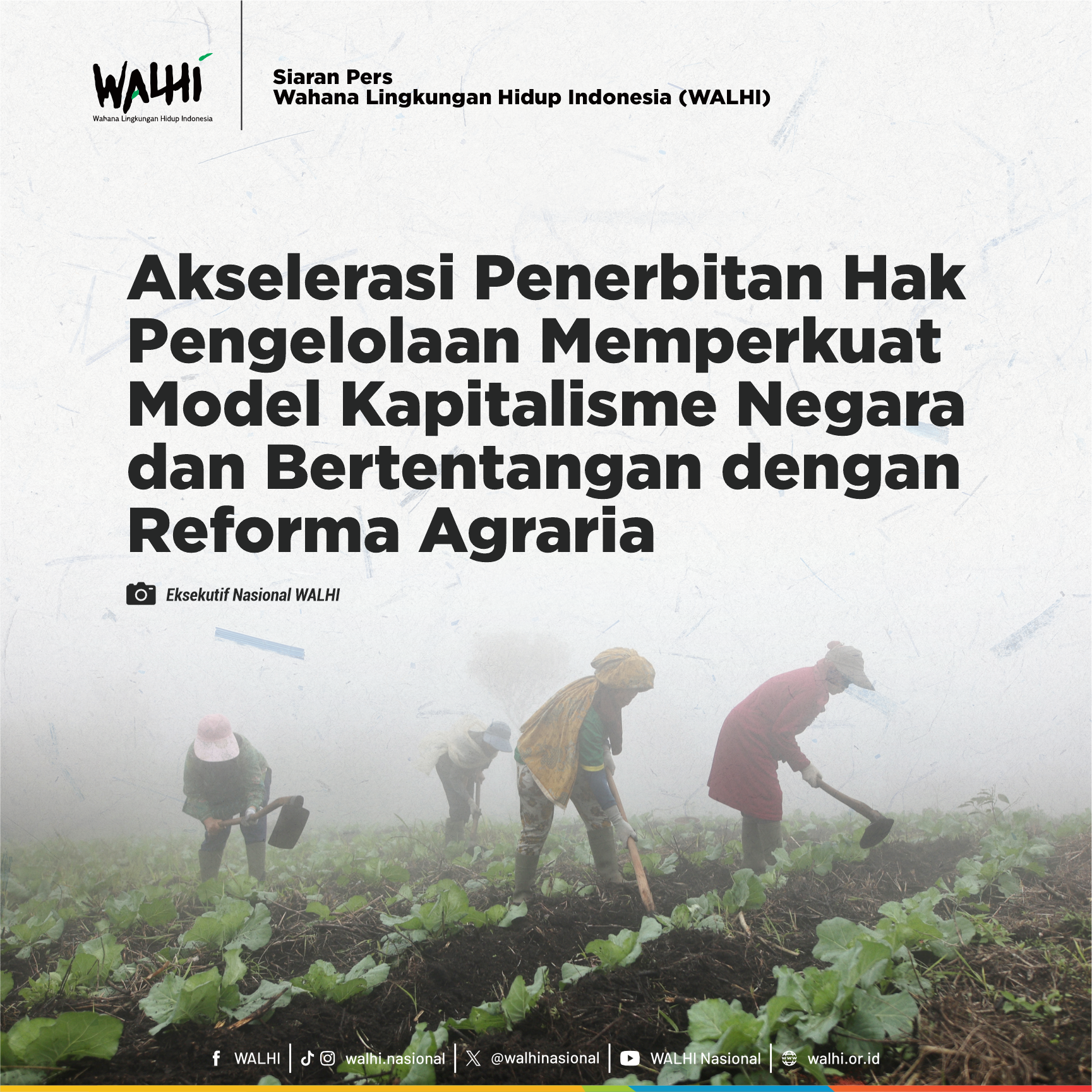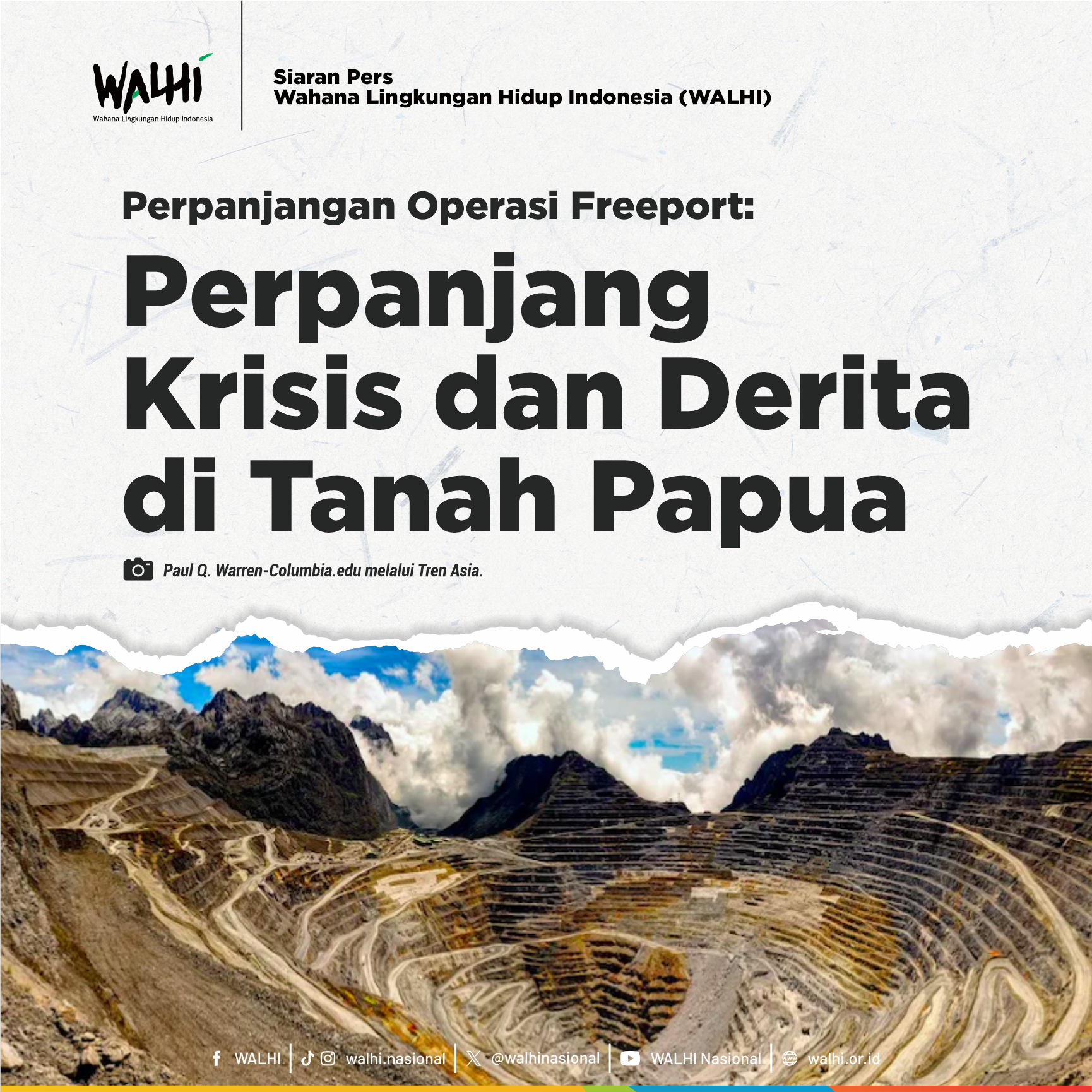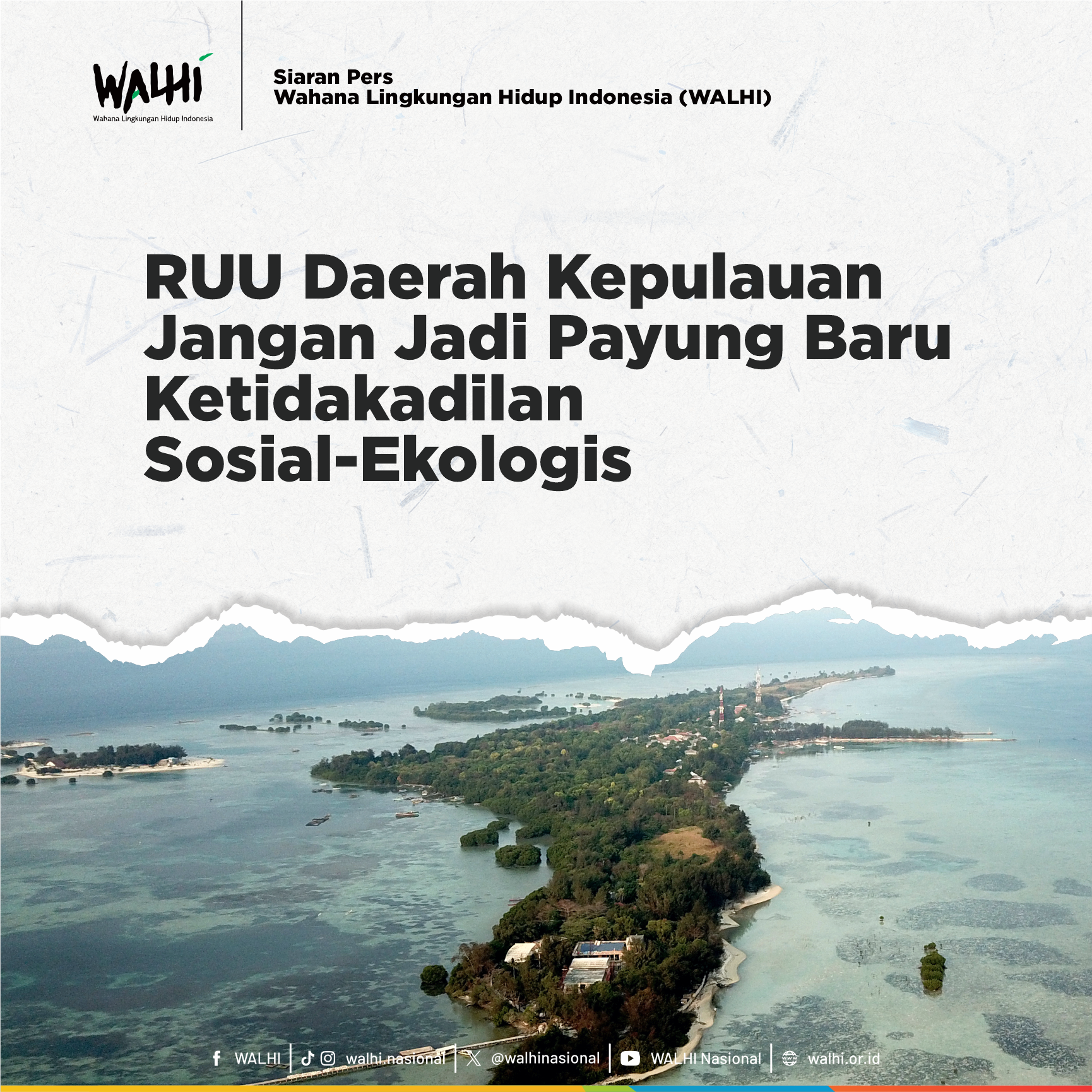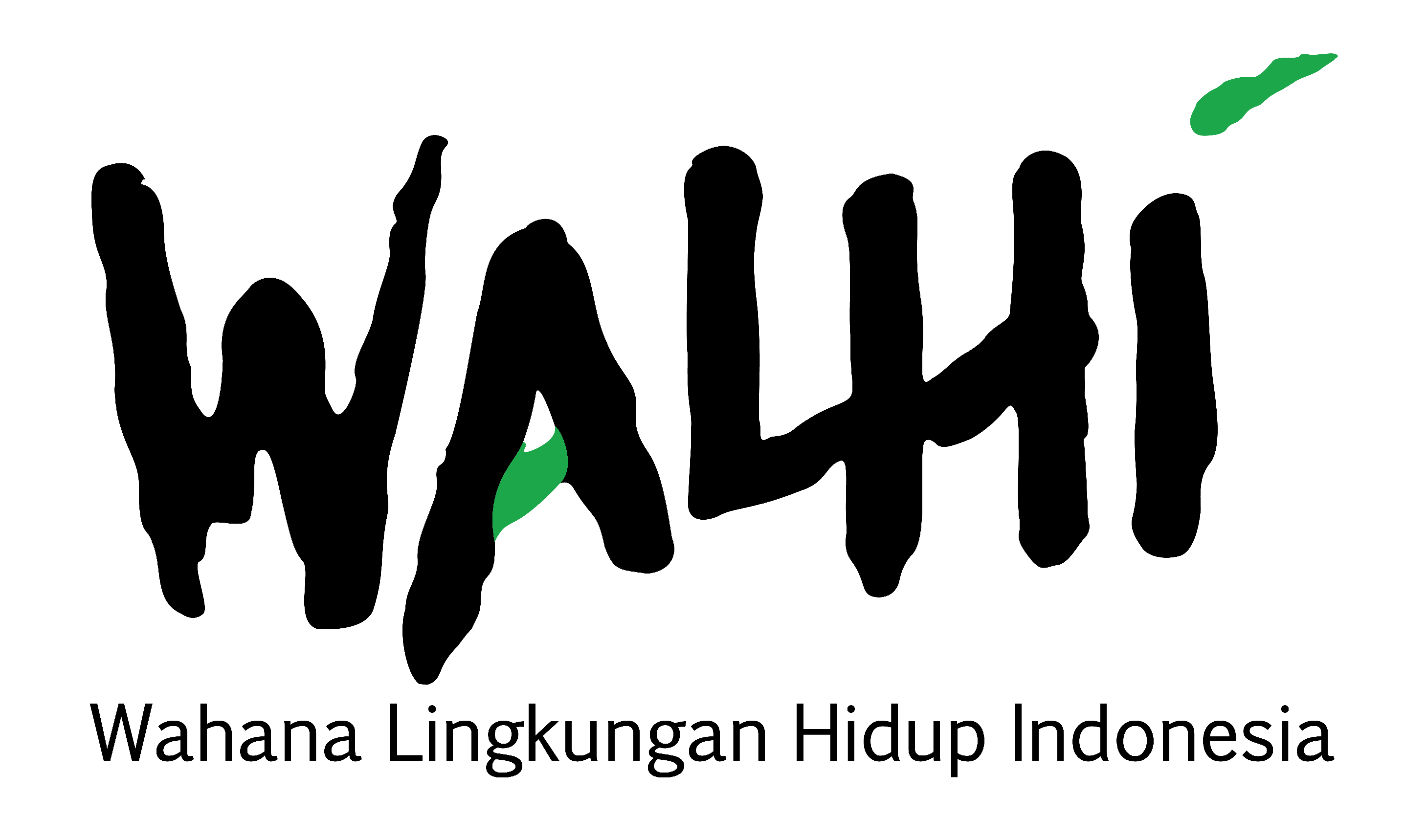Press Release
Friends of the Earth Indonesia (WALHI)
Indonesia-Brazil, November 16, 2025 "Roots Up! Back to the People" is the demand conveyed by WALHI at this year's COP 30. This demand is voiced so that the global climate summit can proceed on the right track, namely climate justice. World leaders worldwide must return to the people: recognition of the rights, roles, knowledge, and traditional practices of the people in developing climate adaptation and mitigation actions. Changing the political economic system away from pursuing growth and away from concentrating power solely in the hands of corporations and the state is essential to addressing the root causes of the climate crisis.
At least since a decade ago, at COP21 in Paris, after the global commitment to keep the earth's temperature increase to 1.5theDespite the agreement, the world hasn't progressed. In fact, much data indicates that 2024 will be the hottest year on record. The World Meteorological Organization (WMO) states that the average global temperature will be around 1.55°C ± 0.13°C above the period 1850–1900. This fact is a consequence of the COP meeting being merely a space to provide solutions from those who have caused them. In fact, according to a recent analysis by the Kick Big Polluters Out (KBPO) Coalition, more than 1,600 fossil fuel lobbyists were granted access to the COP 30 climate negotiations in Belem, including Indonesia. A total of 46 fossil fuel lobbyists were in the delegation and intervened in negotiations on Article 6.4 concerning carbon markets to loosen carbon market regulations.including weaker environmental integrity standards and looser safeguards for high-risk nature-based offset projects, which are deemed to be at odds with science and the 1.5°C target.
"This fact further proves that the state has been "taken over" by corporations, granting them privileged access to influence climate policy, by loosening carbon market rules, so that fossil fuel businesses can easily offset emissions and profit from the carbon business. This practice of corporate capture of Indonesia's actions further demonstrates that the Indonesian delegation's mission lacked a public and environmental safety agenda. We have no time, which is why we are calling for "Roots Up! Back to the People," as a call to action" In COP 30, both in global action in Belem, and simultaneous action in Indonesia," she said. Uli Arta Siagian, National WALHI Forest and Plantation Campaign Manager.
This demand was also conveyed by WALHI together with networks and communities in eight provinces in Indonesia, namely Jakarta, West Java, Central Java, East Java, Riau, East Nusa Tenggara, Jambi, and Central Sulawesi. Yuven Stefanus Nonga, Executive Director of WALHI NTT Region conveying the voices of small islands, the regions most vulnerable to the climate crisis. "Women, children, indigenous communities, fishermen, and farmers living on the coast and small islands are the most vulnerable entities when faced with the climate crisis. We live on the front lines of the climate crisis, on cracked land, rising seas, and mountains exploited in the name of the green transition. Therefore, we urge the government to make the vulnerability of regions and the situation of communities on the ground, throughout the region, the primary basis for formulating climate policies, along with their action and adaptation agendas. We believe the answer can be found if the state returns to the people," he said.
Oscar Anugrah, Executive Director of WALHI Jambi Region, He also stated that Indonesia's current climate commitments are far from ending its dependence on dirty energy. "The policies issued actually pave the way for the expansion of extractive industries that are detrimental to the people and the environment in Jambi. A just energy transition can only be realized if the state returns to the people and listens to their voices, especially women. They are the ones who face climate uncertainty and threats from energy projects every day. COP 30 is not just a space for diplomacy, but must be a turning point to ensure and safeguard the realization of ecological justice, gender equity, and the future of the living space of the people of Jambi."
At the COP 30 action in Central Sulawesi,Sunardi Katili, Executive Director of WALHI Central Sulawesi RegionHe also stated that the COP 30 meeting in Belem, Brazil, was a sham. Northern countries simply continued to shift the crisis to Southern countries. "This is a form of colonization of "Climate," said Sunardi. He also added that carbon trading is not the solution to solving the ongoing climate crisis, but instead, it safeguards large corporate industries in Indonesia. Emission reductions should be carried out directly from the industry itself, such as the nickel processing industry that still uses captive coal-fired power plants in Morowali and North Morowali, Central Sulawesi. There are IMIP, IHIP, SEI, Transon Group, Wangxiang, and even IGIP, a new industrial area that will be built in Morowali, although the latter will use gas energy and a gas-fired power plant for power generation within the area. It is time to stop extractive industrial activities and stop building new ones," concluded Sunardi.
The call to return to the people in addressing the root causes of the climate crisis should be recognized by state administrators. We no longer have the luxury of time to continue to let the people emit the power to continue to devise false climate solutions.A global temperature rise of 1.5°C could pose a drought threat to 951 million people (IPCC). The IPCC estimates that if temperatures rise by 2°C, drought could affect 1.15 billion people, and if the rise reaches 3°C, another 1.28 billion people. In addition to drought, the IPCC assesses that a global temperature rise above 1.5°C could trigger environmental degradation, reduce agricultural production, and even create socio-economic problems.
Contact Person:
WALHI +62 811-5501-980

